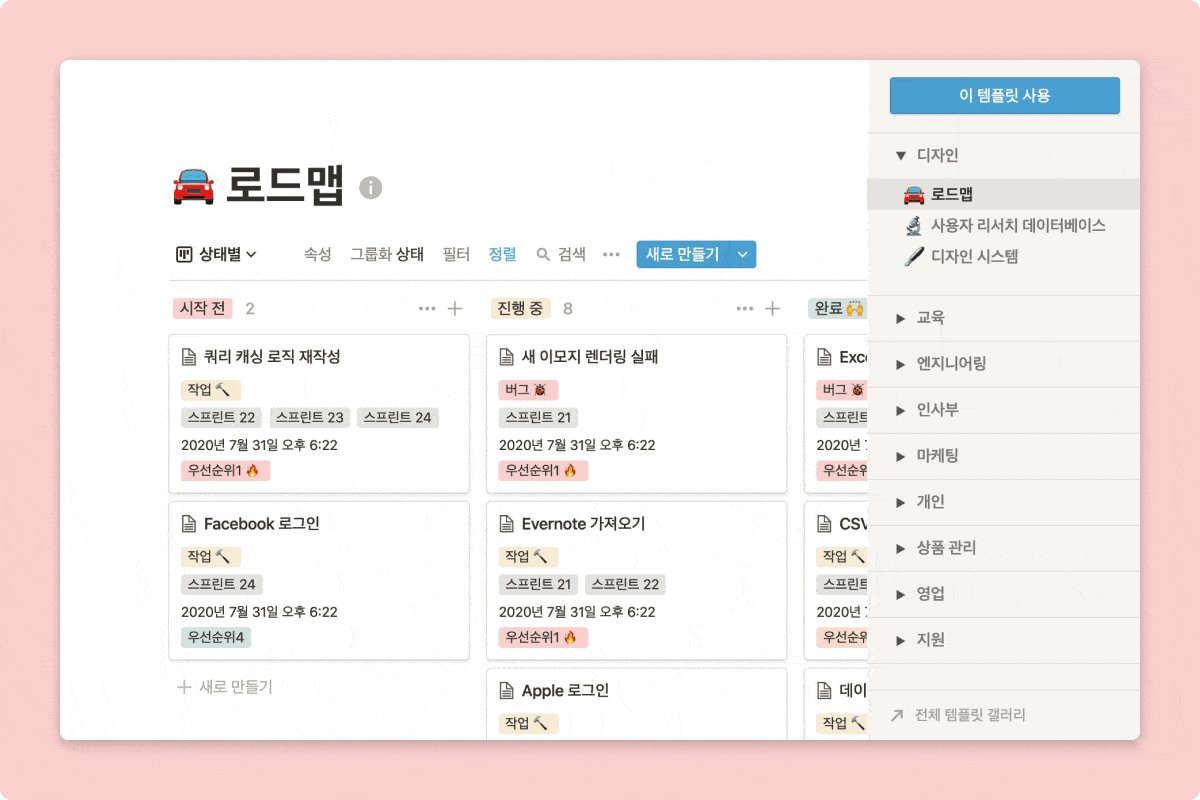On August 10, 2020, Notion introduced its second language — Korean. The team cut no corners, with a fully translated app, templates and even a Korean Help Center.
A Protocol article detailed the elaborate process that made it possible. Using a tool called Lokalise, Notion consolidated every aspect of its product and brand within a single database, making future translations much more efficient.
“Instead of having a different version of Notion for every language, they have one extremely multilingual one,” writes David Peirce.
Thus, we can expect other languages to be introduced soon and frequently.
Perhaps even more notable than the Korean announcement, Notion CEO Ivan Zhao told Protocol that the long-awaited API would debut this quarter.
Bug Fixes & Improvements
As always, the update also included a handful of bug fixes and smaller product enhancements:
- Finished rolling out
Sign in with Appleto 100% of devices across iOS, Android, web, and desktop - Fixed a bug where copying text on a locked page copied the entire text block
- Fixed a bug that caused the app to crash when clicking into an invalid date value from an imported CSV
- Fixed a bug that caused the
+button that appears on hover to be unresponsive - Fixed a bug that forced some users to create a new workspace when opening the Windows App
- Fixed a bug where tapping on a reminder notification didn’t take you to the correct location on Android
- Fixed a bug that caused the app to crash if the auto-translate feature was turned on in Chrome
